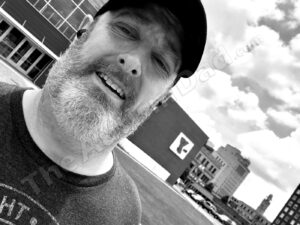This is a guest post by Denise. She responded to my request for people to come forward and let me help them share their story. My goal with this little project is to help everyone have a voice and to show the world how different #Autism is for everyone. I’ll be cleaning up the format in short order and make a few tweaks to the process. I have already received a huge response to this and I’m so excited to be able to be a part of this.
Thank you Denise, for opening up your lives for all of us to see. 🙂
Please note that I have not edited or censored this story in any way whatsoever. These are Denise’s words…
Meeting Autism: A Work in Progress
Our youngest son Mark was born in 2003, the fourth of our children. He was the most quiet, pleasant and easiest of the children as a baby. His development seemed normal and timely, walking around 11 months, interacting with toys and siblings, seeming curious about his surroundings. It was around the age of three we started to realize he might be delayed in speech, but by age four, Mark’s speech delay seemed to be resolving. He was talking but it was scripted, like phrases borrowed and repeated from TV programs or, as we soon came to realize, the written word. He had somehow taught himself to read much to our amazement. He had decoded written language and was reading everything from traffic signs, store signs, billboards and worse…tabloid headlines in the supermarket check-out, out loud! His favorite things on TV were the “credits” running at the end of a show, he would get up really close to and nearly stick his nose on the screen to see them while rising up on his tiptoes and flapping his hands. He also had a strong fascination for a magic erase board, Magna-Doodle, that he began to play with constantly; in fact, he wore his first one out and we later replaced it, (he has since graduated to a DSi “Flipnotes” drawing program). Also at this time he was beginning to line up toys and stack things into tall towers. He would remove all the cereal boxes and sort them in rows and all the canned goods lining them up across the kitchen floor like a long train. This included VHS tapes, DVDs, books, condiments and other refrigerator items; I was growing exhausted just keeping up with the clean-up. He also began the habit of running away, down the street and around the corner and would simply not listen to STOP, or COME BACK, and was beginning to frighten us terribly that something serious could happen. We had to be sure things were locked down, and even cupboards were secured. 
Around the time that Mark’s speech emerged with all its glitches, the more anxious we were to have him evaluated, but as fate would have it, another of our sons was growing extremely ill physically and mentally. It was consuming much of my time as a mother of four and a home school teacher which at the time was preparing our oldest son for graduation and college. Mark was temporarily put on the “do later” list while his brother, four years older than him needed immediate attention. This meant many trips to the local doctor, and the nearest children’s hospital, more than an hour away as we are located in a rural northeastern Ohio area. This son was later diagnosed with Obsessive Compulsive Disorder (OCD), accompanied by generalized anxiety and sensory sensitivity. Once we had this son more stabilized, which took a good year and several months, we began to turn our focus back to Mark. During the waiting period I had continued to school Mark, kept him involved with engaging activities, implementing in-home therapies I had read about in books like “The Out-of-Sync Child has Fun”, (Carol Stock Kranowitz) such as rolling and bouncing on a large nubby sensory ball. I had to assign a watch-person, usually another sibling to him at all times, and took inventory of his deficits as well as noted his areas of improvement, while all the while, educating myself with books, articles and DVDs on Autism spectrum disorders, suspecting Autism was what we were facing.
The waiting list for evaluation in pediatric neurology was a 4 month wait. Finally, in the fall of 2010we made the long drive to the Neuro Development department of our children’s hospital at the referral of our family doctor to begin the evaluation process for Autism; Mark was turning 7 years old at the time. He was scheduled for a full screening, several hours long, including ADOS testing (Autism Diagnostic Observation Schedule), speech-language, hearing, vision, I.Q testing and physical exam. Behaviors we’d been seeing would be evaluated such as those glitches in communication, bodily actions such as hand-flapping, and large motor movements like suddenly breaking out in skipping across the room back and forth – back and forth, repetitively so, (“stimming” as we later learned); not making much eye contact, as well as being absorbed in play unto himself, not seeming to notice anyone coming in or out of the room; playing among the children in gym co-op but not necessarily with them.
After three visits to neurology, Mark was diagnosed with Autism, high functioning with Hyperlexia and above average I.Q. As is the case, many autistic children are intelligent but their impairments make them unable to communicate this fact. My son needed language therapy, occupational therapy, and we were given a written order to pursue genetic testing when able. The speech pathologist as well as the neurologist gave a thorough report with many suggestions and recommendations. Because we home school, we are able to focus very directly on Mark’s deficits and work into our curriculum and daily routine, methods and practices that help him in several areas of processing such as reading comprehension. We had to wait to get into therapies as you might guess the waiting lists at many facilities are very long. It took 3 months to finally be accepted into a schedule of language therapy, and more recently occupational therapy. While we waited we employed some further resource recommendations from the neurologist such as “Social Stories” by Dr. Carol Gray, (http://thegraycenter.org) and Model-Me-Kids DVDs (http://modelmekids.com)
Mark has done very well in his therapies for many months now and has made progress. The speech therapist works on his functional/conversational language through a lot of board game playing; she interweaves the “job” that needs to be done through the game playing, and gets results. This was how she was able to get Mark to make eye contact during conversing by making it part of the game. It took about 4 months to see a natural use of eye contact come about. My husband was thrilled the first time Mark just naturally looked at him making eye contact while “initiating” a conversation, another thing he simply just never did before therapy. We were glad to find a location that is about a half-hour from us that insurance would cover, as I juggle therapy/doctor visits for both Mark and his brother with OCD weekly.
To say the least, while it is rewarding to manage two special needs children 24/7 it is also the hardest job I have ever done. It is demanding to the point of exhaustion and the worry about their futures weighs ever heavy in my heart and mind. My husband works a full time and a part time job to help provide further finances and allow us the insurance coverage we need. Along with my husband, my friends closest to me hear the frustrations and stress whether in person, by phone or social media. I am grateful to have those I vent to who understand and have held me up on many an occasion.
While Autism itself wasn’t new to us, (I have a first cousin with Autism), having a child of our own with the disorder is. Our journey has just begun with Mark and it is definitely a work in progress. In taking inventory, we are pleased with Mark’s improvements but ever so aware of how we must advocate constantly for his betterment and for better and affordable services available to all those with autism across the board. We are grateful to have such good professionals, including therapists helping us. We are also glad that so much is being written and shown to the public now, raising Autism awareness and helping to fund further research.


